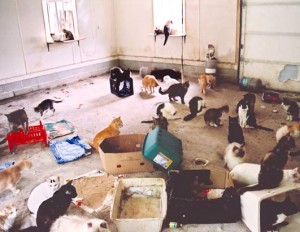The Case for Regular Rental Property Inspections
 Landlords, do you really know what’s going on inside your rental properties? Has a tenant ever surprised you with unacceptable (or illegal) behavior? How many of you have discovered evidence of an unauthorized pet—after the tenant moved out?
Landlords, do you really know what’s going on inside your rental properties? Has a tenant ever surprised you with unacceptable (or illegal) behavior? How many of you have discovered evidence of an unauthorized pet—after the tenant moved out?
It only takes a quick scan of a newspaper to find the horror stories landlords and property managers must deal with: Woman found with 32 cats in studio apartment; Police raid methamphetamine lab in neighborhood home; Marijuana-growing operation in basement shocks neighbors.
As a landlord, you have the right and duty to inspect your rental properties. The right to know what activities are taking place on your property should be clear in your lease. If your tenant signs it, they affirm that they agree. The duty falls under protecting your other tenants and the community around your property by keeping illegal activity out of your rentals.
Scheduling periodic inspections can be done as soon as the lease is signed. Or, if you decide at any time during the lease period to begin inspections, just let your tenant know when you’ll be there. The element of surprise could work in your favor if you suspect a tenant is breaking the rules, but remember that in most states, you must give notice prior to entering a tenant’s unit.
Communicate with your tenant. Let them know that the inspection is routine and necessary to ensure that systems are operating properly, or to check for plumbing leaks, test CO2 levels, locks, fire extinguishers or structural problems. Allow them to ask questions. Tenants with nothing to hide will likely have no problem with you coming into their home. If a tenant wants all the details of the inspection, or asks for more time, you could have a problem on your hands.
On inspection day, check all the systems, fire extinguishers, smoke alarms, and plumbing. As you walk through each room, see what else is going on. Listen for any odd noises, like a hidden dog or cat (it happens!). Look for signs of animals, illegal activity, and “odd-shaped” plants. If there is a basement, attic, or storage area, check them out, too. Any drug-related activity is likely to occur out of sight.
If you find evidence of illegal activity, do not confront your tenant on the spot. Call the police and tell them what you have seen or heard. If the tenant’s infractions are lease-related, such as extra people or animals you have not approved, follow your established procedures for tenants who break the provisions of your lease.
A simple habit like regular inspections of your rental properties can go a very long way to preventing big problems!
